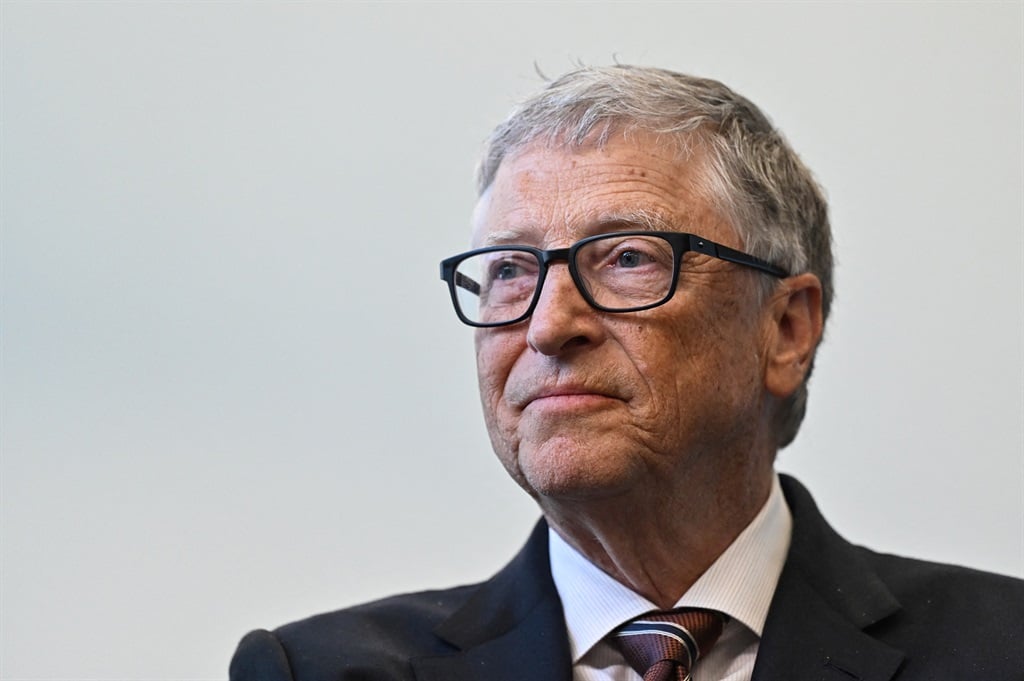
- Business magnate Bill Gates says there is a need to develop technology that can be used to manufacture vaccines of the future.
- Last week, Gates announced that South Africa and Senegal were to receive $5 million each to develop vaccines.
- He said the ability to manufacture vaccines should incentivise scientists to discover and develop vaccines for locally relevant diseases.
"The ability to manufacture vaccines should incentivise scientists to discover and develop vaccines for locally relevant diseases."
This is according to business magnate Bill Gates, who spoke to News24 during the Grand Challenge annual meeting in Dakar, Senegal, last week.
Gates said there was a need to develop technology that can be used to manufacture vaccines of the future, build capacity and avoid white elephant factories.
"To save more lives, we must keep challenging ourselves to innovate. I talk every year about the miracle of vaccines. I may be the world's number one fan of vaccines," he said.
"But there are still big mysteries to solve if we're going to make vaccines even better. For example, some vaccines – like the one for HPV [human papillomavirus, which often does not cause problems, but can cause genital warts or even cancer], the most common sexually transmitted infection – protect against disease for 10 years or more. Others like the Covid vaccine lose effectiveness after just a few months. We need to ask ourselves how we can make vaccines that protect for a lifetime."
READ | How an HIV chatbot hopes to get South Africans to open up about sexual history, challenge
Gates announced that the Bill & Melinda Gates Foundation, of which he is co-chair, would invest $40 million (R753 million) to advance access to messenger RNA (mRNA) research and vaccine manufacturing technology to support low- and middle-income countries' capacity to develop high-quality vaccines at scale.
As a result, the Institut Pasteur de Dakar (IPD) and Biovac, research institutes based in Senegal and South Africa, respectively, will receive $5 million each to acquire the technology they need to develop locally relevant vaccines.
Gates said mRNA vaccines have simpler research and manufacturing processes than traditional vaccines.
"Expanding access to this next-generation technology can help countries such as Senegal and South Africa gain autonomy to discover and develop low-cost, high-quality vaccines for diseases such as malaria and tuberculosis [TB], which are consistent with their health priorities," he said.
He added that the Bill & Melinda Gates Foundation has many partners in South Africa, with whom it has done a lot of TB and HIV work.
Gates said:
Trevor Mundel, president of the Bill & Melinda Gates Foundation's global health division, said expanding the availability of affordable, high-quality vaccines that meet the needs of local communities could be the best way to improve global health and reduce preventable deaths.
"By lowering barriers to access for low- and middle-income countries, we can help ensure that more people around the world benefit from lifesaving health innovation," Mundel said.
Biovac CEO Morena Makhoana said innovation could be transformative, but only if it reaches the people who need it most.
ALSO READ | 'Imagine everyone being vaccinated': Activists welcome VIR-1388 trial to 'end Aids in our lifetime'
Collaboration between the Bill & Melinda Gates Foundation and the research institute will help close critical gaps in access to promising mRNA vaccines against diseases that disproportionately affect the world's poorest.
"It will also assist us in our mission to establish end-to-end vaccine manufacturing capability at scale in Africa for global supply," he said.
IPD CEO Amadou Sall said expanding their capacity to discover and manufacture affordable mRNA vaccines in Africa was a necessary step towards self-reliance.
A facility allowing Africa to access vaccines cost-effectively is currently under construction in Senegal. The centre is expected to be completed by 2026.




 Publications
Publications
 Partners
Partners























